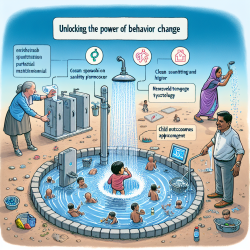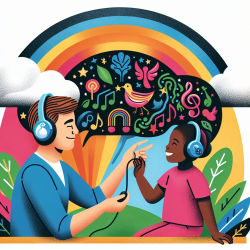Understanding the Link Between ASD Severity and Problem Behavior
Research has established a strong link between ASD symptom severity and problem behavior. Problem behaviors can include anxiety, depression, withdrawal, and aggression, among others. However, the severity of these behaviors often varies with the severity of ASD symptoms.The Role of Sleep Disturbance
Sleep disturbances are prevalent in children with ASD, affecting 40% to 80% of this population. These disturbances can range from delayed sleep onset and night waking to sleep-disordered breathing and daytime sleepiness. The study highlighted that the relationship between ASD severity and problem behavior is significantly influenced by the presence and degree of sleep disturbances.Key Findings
- Moderate-to-Severe Sleep Disturbance: For children with moderate-to-severe sleep disturbances, problem behaviors were consistently high, regardless of ASD symptom severity.
- No or Mild Sleep Disturbance: In children with no or mild sleep disturbances, there was a positive relationship between ASD severity and problem behavior. Severe ASD symptoms correlated with more severe problem behaviors.
- Specific Sleep Issues: Sleep duration, disordered breathing, and daytime sleepiness were particularly significant in moderating the relationship between ASD severity and problem behavior.
Practical Applications for Practitioners
Given these findings, practitioners should consider the following strategies:- Routine Sleep Assessments: Regularly assess sleep patterns in children with ASD to identify any disturbances that could exacerbate problem behaviors.
- Targeted Interventions: Implement interventions aimed at improving sleep, such as behavioral sleep interventions, light therapy, or pharmacological options, as appropriate.
- Holistic Approach: Consider the interplay between sleep disturbances and ASD severity when developing treatment plans. Addressing sleep issues may help reduce problem behaviors and improve overall outcomes.
Encouraging Further Research
While this study provides critical insights, further research is needed to explore the nuances of how different types of sleep disturbances affect problem behaviors. Practitioners are encouraged to stay updated with ongoing research and incorporate new findings into their practice.Conclusion
Addressing sleep disturbances in children with ASD can be a powerful tool in managing problem behaviors. By incorporating regular sleep assessments and targeted interventions, practitioners can help improve the quality of life for children with ASD and their families.To read the original research paper, please follow this link: Problem Behavior in Autism Spectrum Disorder: Considering Core Symptom Severity and Accompanying Sleep Disturbance










